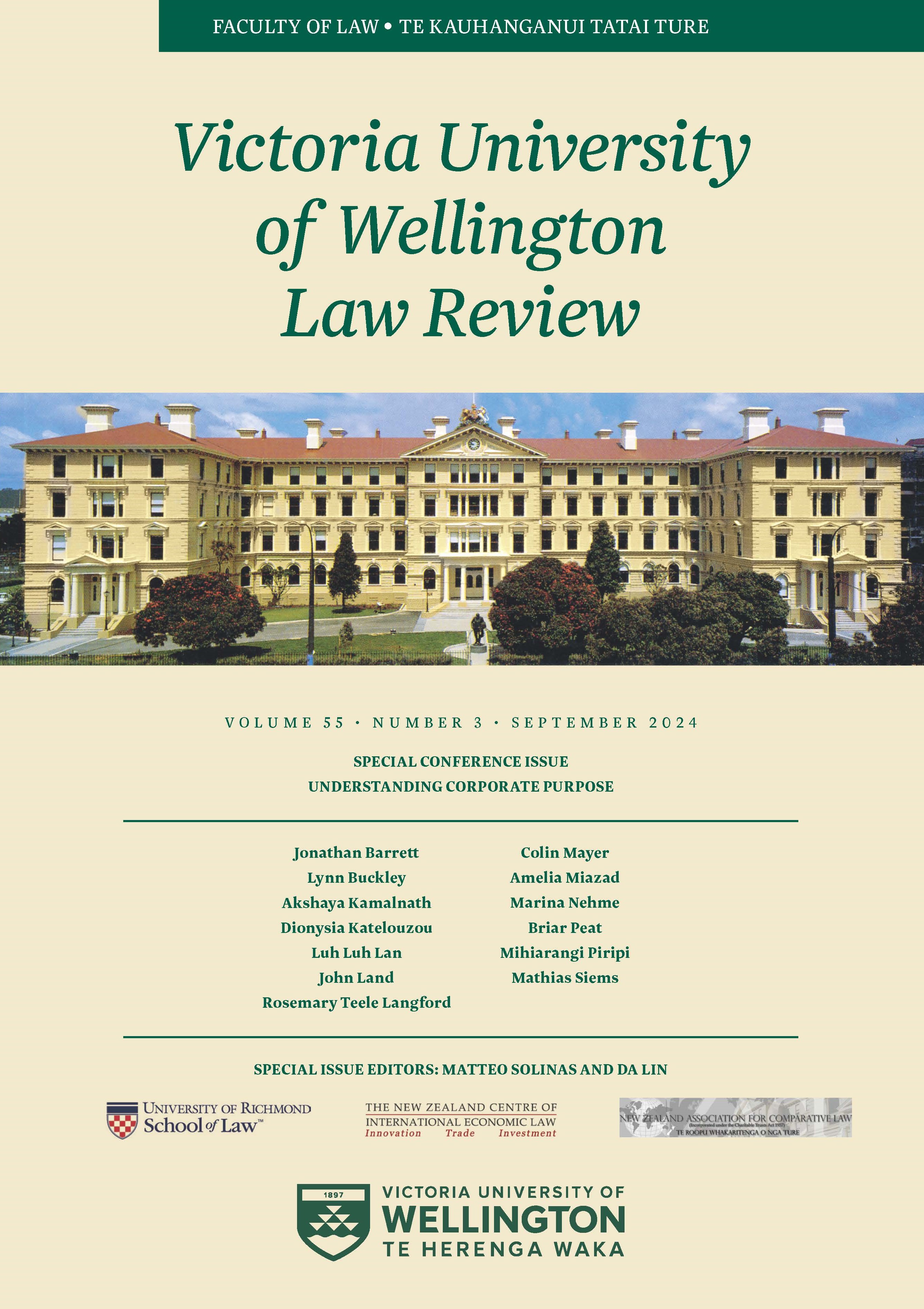Corporate Purpose and the Impact on Equitable Remedies, Economic Growth and Democracy
DOI:
https://doi.org/10.26686/vuwlr.v55i3.9839Abstract
Section 131(5) of the Companies Act 1993 permits a director, as part of the duty to act in the best interests of the company, to "consider matters other than the maximisation of profit (for example, environmental, social, and governance matters)".
This article suggests that the section is problematic in that it appears to suggest that ESG factors can override the pursuit of shareholder wealth. That in turn gives rise to three concerns.
First, the section creates added complexity for how to assess whether directors' actions amount to a breach of the fiduciary duty to act in the best interests of the company. That is problematic when the duty gives rise to equitable remedies, such as rescission of contracts, and therefore detracts from commercial certainty. Secondly, the section, by distracting directors from a focus on company and shareholder wealth enhancement, lessens the benefit of the corporate form as an engine for economic growth. Thirdly, an approach that favours ESG matters over shareholder interests is undemocratic, as directors are expected to make judgements on whether actions are socially and environmentally desirable when that should be the function of a democratically elected Parliament.
The article suggests that the current Government was right to suggest that s 131(5) should be repealed.
Downloads
Downloads
Published
How to Cite
Issue
Section
License
Authors retain copyright in their work published in the Victoria University of Wellington Law Review.


